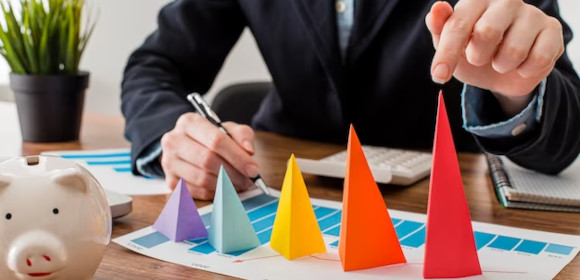13+ Teacher Professional Goals Examples
As education continues to evolve, so do the expectations placed upon educators. In this dynamic landscape, teachers are not only responsible for imparting knowledge but also for continuously refining their skills and approaches. One crucial tool in this journey of growth is setting and achieving teacher professional goals. This article aims to provide insights into what teacher professional goals are, how to formulate them effectively, and answers to common questions regarding this process.
1. Teacher Resume Example

2. Smart Goal for Teacher Example

3. Personal Development Plan Example
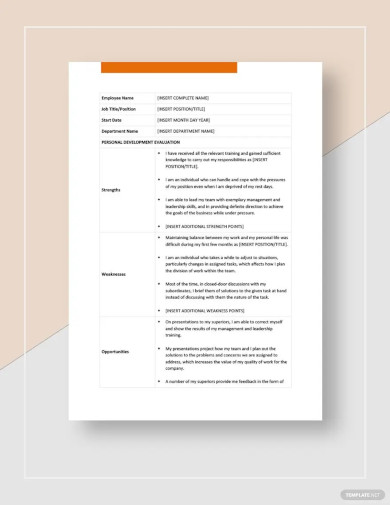
4. Teacher Professional Goals Example
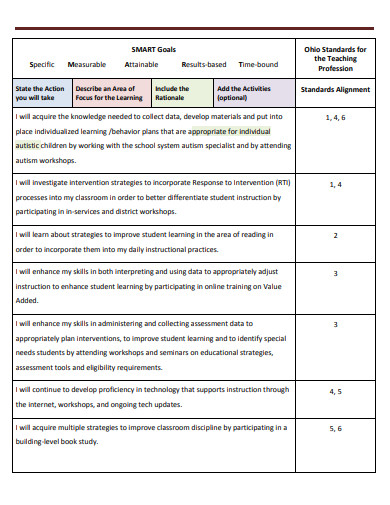
esclakeeriewest.org
5. Teacher Resume Example
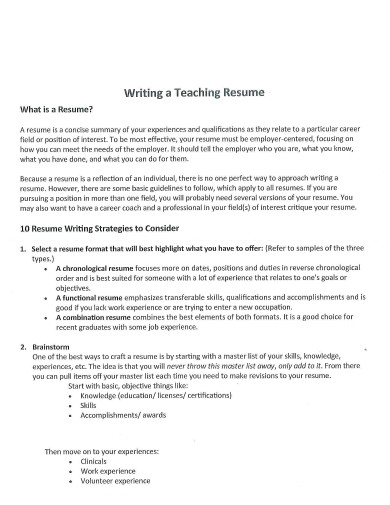
unwsp.edu
6. School Teacher Goals Example
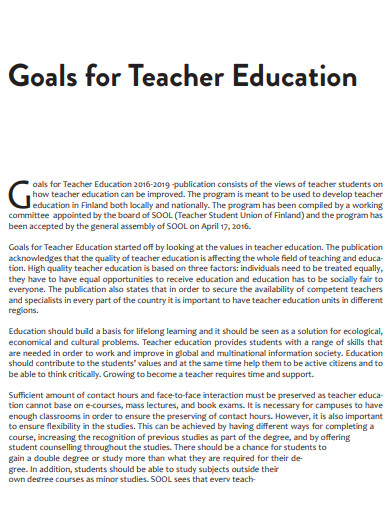
sool.fi
7. Fresh Graduate Teacher Resume Example
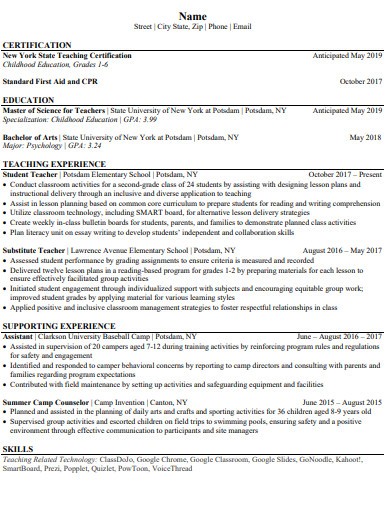
potsdam.edu
8. Personal Growth Plan for Teacher Example
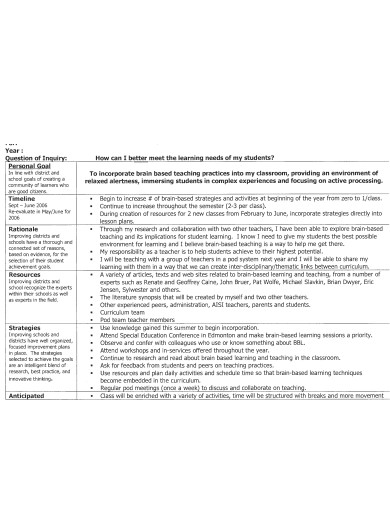
ulethbridge.ca/
9. Smart Goals for Teacher Example
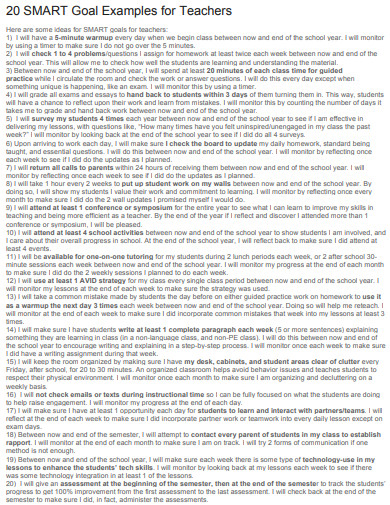
core-docs.s3.amazonaws.com
10. Professional Development Goals Example
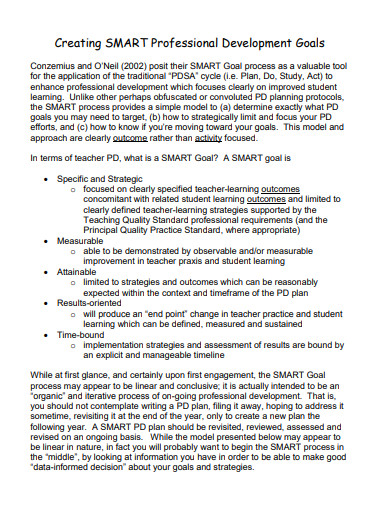
manateeea.org
11. Personal Development Plan Example
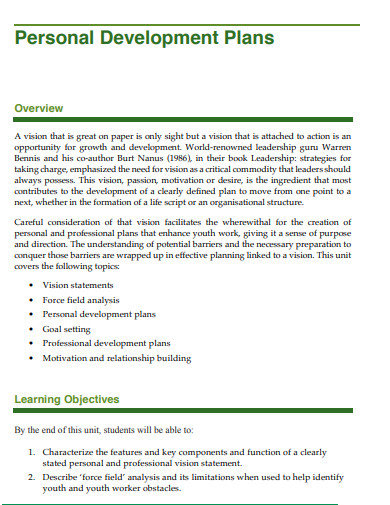
edu.thecommonwealth.org
12. Professional Growth Plan Example
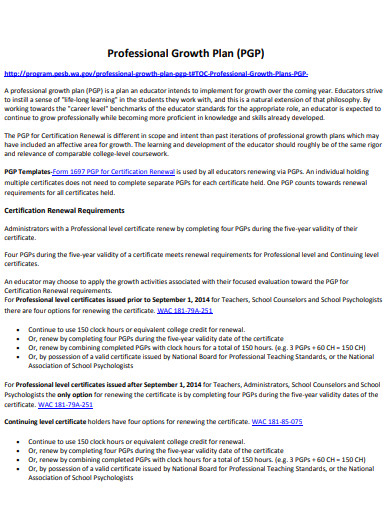
awsp.org
13. Teacher Evaluations Example
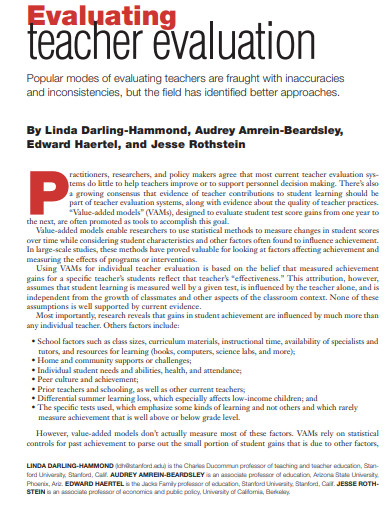
soe.syr.edu
14. Self Reflection Goals Example
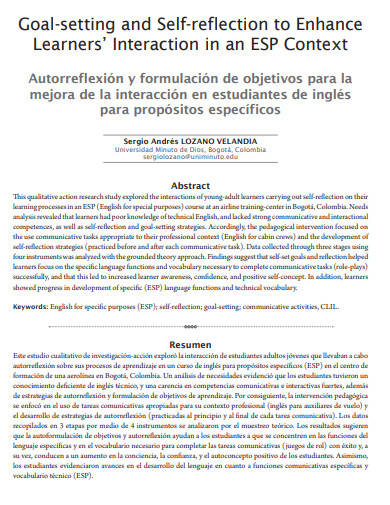
files.eric.ed.gov
What are Teacher Professional Goals?
Teacher professional goals are specific objectives that educators set for themselves to enhance their skills, teaching methodologies, and overall effectiveness in the classroom. These goals are derived from a careful self-assessment of one’s strengths, weaknesses, and the observation of classroom dynamics and student behaviors. The ultimate aim is to improve teaching practices, foster personal and professional growth, and achieve long-term career aspirations.
How to Write Teacher Professional Goals
Crafting effective teacher professional goals requires a strategic approach that aligns with individual strengths, weaknesses, and the broader educational context. Here’s a step-by-step guide to help educators navigate this process successfully.
Step 1: Self-Assessment and Reflection:
Before setting goals, it’s crucial to reflect on your current skills, characteristics, and teaching methods. Identify your strengths and weaknesses, as well as the areas where you wish to see improvement. Consider both short-term and long-term goals, ensuring they correlate with your career aspirations.
Step 2: Define Clear Objectives:
Outline specific objectives that you aim to achieve. These objectives should be measurable and attainable within a reasonable timeframe. For example, if you want to enhance your classroom management skills, a clear objective could be to implement three new classroom management strategies within the next semester.
Step 3: Establish an Action Plan:
Detail the steps you need to take to reach your defined objectives. Break down your goals into smaller, manageable tasks. This might involve attending relevant workshops, incorporating new teaching techniques, or seeking mentorship from experienced colleagues.
Step 4: Monitor Progress and Adapt:
Regularly monitor your progress toward your goals. Keep a record of the changes you’ve implemented, and assess their impact on your teaching methods and student outcomes. Be open to adjusting your action plan if necessary, based on the results and feedback you gather.
FAQs
How do teacher professional goals relate to long-term career goals?
Teacher professional goals serve as stepping stones toward achieving long-term career goals and aspirations. They help educators develop the skills and expertise needed to progress in their careers while positively impacting student learning.
What’s the correlation between self-assessment and setting effective goals?
Self-assessment is the foundation of effective goal-setting. By identifying strengths, weaknesses, and areas for growth, educators can create targeted goals in correlation to their specific needs and lead to meaningful improvement.
Can teacher professional goals help in addressing weaknesses?
Absolutely. Teacher professional goals are designed to address weaknesses by providing a structured approach to improvement. By setting objectives that directly target areas of weakness, educators can actively work towards enhancing their skills.
In the ever-evolving world of education, teachers must embrace a commitment to continuous growth and improvement. Teacher professional goals provide a roadmap for educators to enhance their skills, adapt their teaching methods, and align with their career aspirations. By following the steps outlined in this guide, educators can embark on a journey of self-discovery, transformation, and ultimately, a more impactful educational experience for their students.


